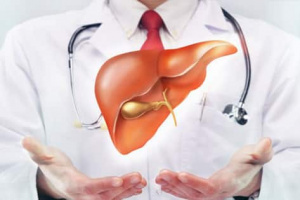Dr. Sheetal Mahajani (Dadhphale) - Liver Transplant Physician in Pune

Medical Hepatology
Hepatology is an area of medicine that focuses on diseases of the liver as well as related conditions.
A hepatologist is a specialized doctor involved in the diagnosis and treatment of hepatic diseases, which include issues that affect your:
- liver
- gallbladder
- pancreas
- biliary tract
Here’s what you need to know if you’re considering seeing a hepatologist for diagnosis or management of a related medical condition and are seeking to obtain a referral to this type of specialist.
Liver
Hepatology’s primary focus is on the liver.
This essential organ is responsible for helping to digest the foods you eat as well as supporting your metabolism and getting rid of toxins.
The liver also helps store and process fat-soluble vitamins, such as vitamin D3 and vitamin E.
Pancreas
Located behind the stomach, the pancreas is responsible for making insulin and producing digestive enzymes.
Acute or chronic pancreatitis can occur when the enzymes involved in digestion damage the pancreas, causing serious inflammation.
This can also happen when the digestive enzymes made by the liver or pancreas can’t be released due to a blockage by a stone
Gallbladder
The gallbladder is a small organ located on the upper-right part of your stomach.
The gallbladder is a pouch that collects the bile produced by the liver. When you eat a meal, it contracts and dumps its contents into the intestines to help with digestion.
Gallstones can form when bile imbalances occur, thereby blocking bile flow.
Biliary tract
Also called the biliary tree or biliary system, the biliary tract is the connection, or tract, between the liver, the gallbladder, and the pancreas.
The biliary tract allows bile and pancreatic enzymes to get into the small intestine to help with digestion, including fat digestion.
Request A Free Consultation
Liver Care Clinic
- Dhadphale Nursing Home Campus, 1206/B/2 Shivaji Nagar, Pune - 411 004.
